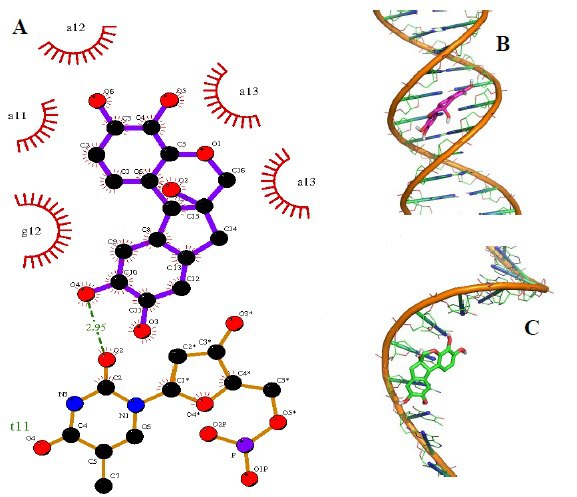https://goo.gl/SeBrDT
#Achievements of Iranian researchers
Construction of “nano biosensor” to detect transgenic products
Today, the use of transgenic products is becoming popular in different societies, and agricultural and livestock products derived from biotechnology techniques have opened their place in the food chain of many people. Despite this issue and also with the existence of very high-level technologies of this science and spending time and conducting various researches by scientists in this field, there are still strong resistances against the promotion and use of these types of products in various countries and societies. @zistfan
Surveys show that most of these resistances are related to the concerns related to the biological safety of these types of products, and therefore, finding reassuring ways that encourage people to consume these types of products, or at least, their concerns regarding the intentional or unintentional mixing of products. It is of particular importance to reduce and increase transgenic products with normal products.
To identify transgenic products and check their presence among other products, there are several methods, each of which has its own advantages and disadvantages. But in a recent research conducted by the researchers of our country, a method for quantifying and detecting these types of products was presented, which is based on nanotechnology and has significant advantages in terms of time and cost.
In this research, which was carried out by researchers from Islamic Azad Universities, Tehran Science and Research Unit and Yazd Unit, in collaboration with Khorazmi University and the Food and Drug Organization of the Ministry of Health, Treatment and Medical Education, an electrochemical biosensor in nano dimensions or so-called “nanobiosensor” Designed and built to be able to effectively and efficiently detect and quantify the presence of DNA of transgenic products in samples.
In the above study, which was conducted under the supervision of Dr. Navid Nasirizadeh, vice president of research and information technology and a member of the faculty of the Faculty of Textile and Polymer Engineering, Islamic Azad University, Yazd Branch, the researchers using nano materials, including “Sheet Graphene Oxide” or EGO and also Gold nanostructures known as GNU made appropriate changes in the screened carbon electrode and then placed a specific DNA probe along with the substance “hematoxylin” as an electrochemical marker.
After making this nanobiosensor, the researchers optimized it in terms of usage time periods as well as the concentration of its components and then evaluated its performance using different methods such as scanning electron microscopy (FE-SEM), rotational voltammetry and electrochemical spectroscopy. they put
According to the above researchers, this nanobiosensor, which has a linear range of 40 to 1100 femtomol and a detection limit of 13 femtomol, has a very high ability to select and find the target DNA related to transgenic products.
Dr. Nasirizadeh and his colleagues have also stated that the use of this electrochemical biosensor is economical in terms of time and cost and can be easily used in the real environment related to the DNA sample extracted from transgenic products and has a useful role in identifying this perform products. @zistfan1
Author: Mohammad Reza Delfieh
Journal: Biosensors and Bioelectronics
Impact factor: 7.476
Article link: http://zist-fan.ir/go/0123-697/
Membership in Biotechnology of Molecular Medicine: https://T.me/zistfan1
Subscribe to Zistfan channel: https://t.me/zistfan
This post is written by motealehi
